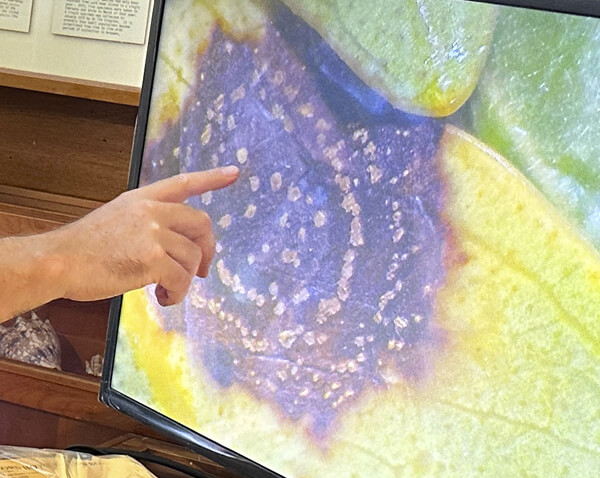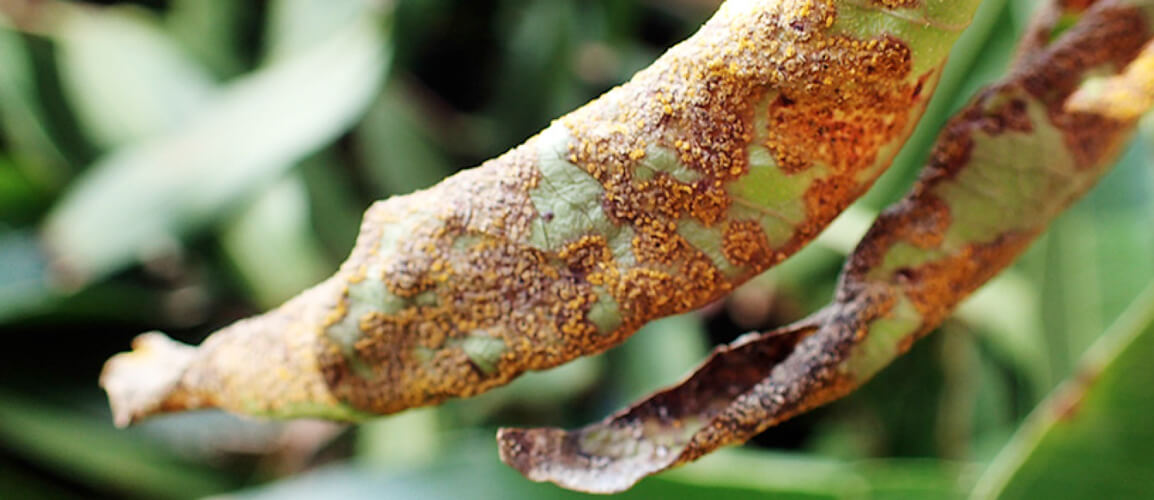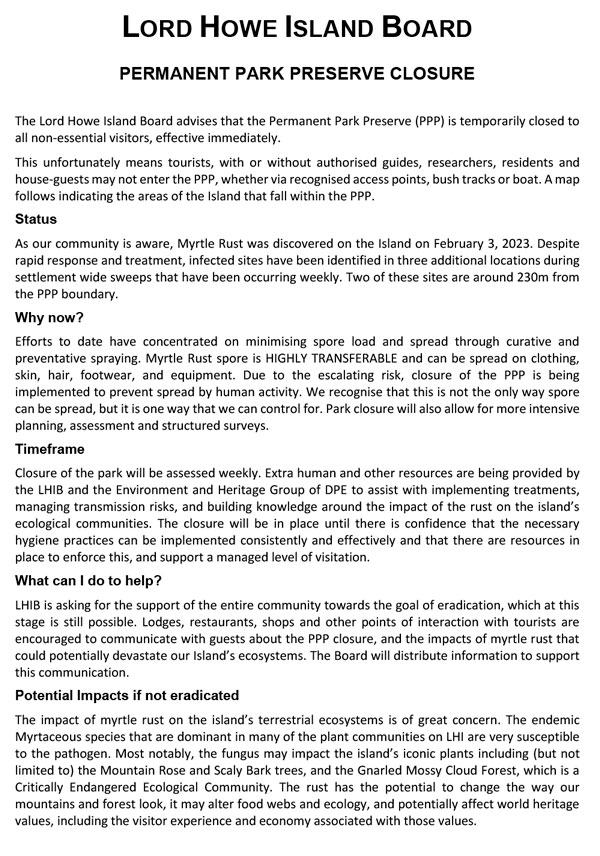This is the second time Myrtle Rust has been found on the island. In October 2016 two garden plants of Rose Apple tree (Syzigium jambos) showed signs of Myrtle Rust.
At the time the Lord Howe Island Board staff successfully treated those affected plants and it was eliminated from the Island.
What is Myrtle Rust?
Myrtle rust is a fungus (Austropuccinia psidii) native to South America that affects plants in the family Myrtaceae (which include Eucalyptus and Calistemon).
The fungus impacts plant foliage, in particular flower buds and new growth, preventing the plant’s capacity to photosynthesise, causing plant decline or death. It can also cause dieback or death of seedling plants.
The disease is highly infectious as it produces thousands of spores that remain viable for up to 3 months and are readily spread by wind, rain splash, human activity and animals.
In the last twenty years the fungus has spread from South America, most likely by human transport moving plants around. Asia, Hawaii, New Zealand, Australia and New Caledonia all have had severe outbreaks of the plant disease.
The rust can transport by humans, by wind, and other animals such as birds.

The rust first reached the Central Coast of NSW in 2016 and quickly spread down to Victoria, up to far North Queensland; recently it has been found on myrtaceous plants in the Kimberley region of W.A.
There is concern in many countries that some species of Myrtaceae plants will become extinct, and that whole ecosystems will be disrupted, as the death of plants can impact insect, mammal and bird species.
Susceptible plants on Lord Howe Island
Lord Howe island has five endemic plants in the Myrteaceae family – Scalybark (Syzigium fullagari), Tea tree (Leptospermum polygalifolium), Tea tree (Melaleuca howeanum) and two Mountain Rose species (Metrosideros nervulosa and sclerocarpa).
Tests done on these plants in a laboratory show they are all susceptible to the Myrtle Rust.
What is being done to combat the threat?
Following the discovery and treatment of the bottlebrush tree infected with myrtle rust in February, the Lord Howe Island Board had staff search the whole settlement for signs of other infected plants. Three more leases had infected plants in the gardens, one of those within 200 metres of the Permanent Park Preserve which contains the endemic plants that could be infected.
As a measure to stop the spread of Myrtle Rust into the native forest with the endemic plants, on Wednesday 15th March the Board closed the whole Permanent Park Preserve; this applies to tourists, researchers and residents. This will cause some inconvenience to people but is essential to have the best chance to stop the spread of the fungus from the settlement into the native forest.
On Thursday 16th March the Board flew expert Craig Stehn, Senior Threatened Species Officer, Biodiversity and Conservation with Department of Planning and Environment, and a plant pathologist Dr Angus Carnegie over to investigate the problem, and train local staff on how to identify what the rust looks like on plants, and what other fungus species on plants may look like.
The Board staff will begin searching tracks within the Permanent Park Preserve to determine if the rust has moved onto plants in those areas.
The situation will be assessed weekly and the Permanent Park Preserve will remain closed until this outbreak is better understood, and resources and practices are in place to protect the native plant species.
References
Temporary closure of the Permanent Park Preserve
Lord Howe Island Board, NSW Government, March 14th, 2023
Most of Lord Howe Island off limits to visitors…
ABC News, March 16th, 2023
Lord Howe Island closes as it fights invasion of myrtle rust spore
nine.com.au, March 17th, 2023
Most of Lord Howe Island is off limits due to the detection of invasive plant pathogen myrtle rust
Cosmos, March 20th, 2023







